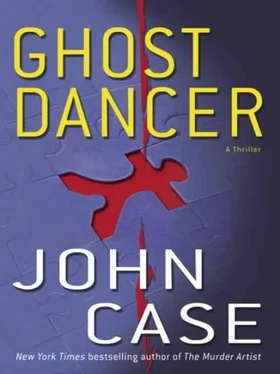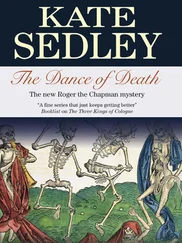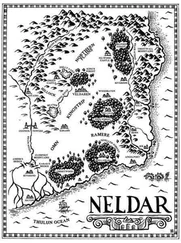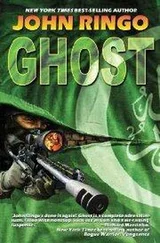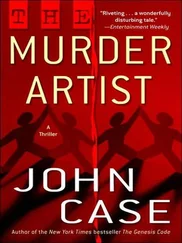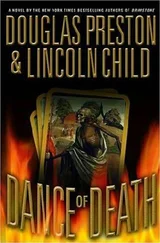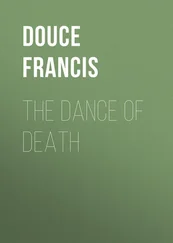“I think it’s probably pretty valuable,” Wilson said.
Bizwa frowned. “Well,” he said, “it’s certainly… very nice.”
“I bought it in Uganda,” Wilson told him. “Helluva good deal.”
There was a weak smile from Bizwa as he folded his hands, and tried to look helpful.
“I figured, since I’m in the neighborhood, I’d come over here. See what I can see.” He winked.
Bizwa looked puzzled. “You mean, diamonds?”
“Bingo!”
“Well, you’ve come to the right place.”
“That’s what I’m told.”
“But you’re not in the diamond business yourself?” Bizwa asked.
Wilson shook his head. “No, I’m a coffee buyer.”
Bizwa snorted with laughter. “You came to Bunia to buy coffee?”
“No, no,” Wilson said. “Like I said, this is just a side trip.”
“I see,” Bizwa replied, though he clearly didn’t.
Wilson glanced over his shoulder, then leaned forward. In a whispery voice, he confided, “I was hoping you could help me out. I’ll want to buy a diamond. On account of I’m getting married,” Wilson explained.
“How nice!”
“So I was thinking… three, maybe four carats, rough. They say the rough diamonds, when they’re cut, lose half their size. So that would be, what? One and a half to two carats.”
“Mmmmnnn.”
“You think it’s doable?”
Bizwa nodded. “Yes. Quite doable.”
“But illegal, n’est-ce pas ?”
The banker smiled. “Well, I don’t think you’ll have any difficulties. To begin with, there aren’t any police. Just traffic people who haven’t been paid for a long time.”
“What about the UN? I saw-”
“Uruguayans, Bangladeshis… they have a pretty full plate. And then, of course, what you’re suggesting… it’s what people do here.”
“Is it? Tell me about that. What do they do?”
“They buy and sell diamonds. It’s the entire economy.”
“Ah!” Wilson pretended to think about that. Then, he said, “So you could recommend someone! A diamond salesman?”
Bizwa gave him a hapless look. “Well, of course, but… they’re everywhere. Every taxi driver has a diamond to sell, or knows someone who does. Every militiaman, every – The thing is, it can be a bit dangerous. They could take advantage of you.”
“That’s what I’m afraid of,” Wilson told him. “I could be taken to the cleaners!”
“My best advice would be to stick with the dealers who have shops. They’re Lebanese, mostly. And having a shop means they’ll be there the next day. The cabdriver might not.”
“And they’re Lebanese, you said?”
Bizwa shrugged. “Almost all of them. There’s a Chinese gentleman, but I wouldn’t recommend that you do business with him.”
“Why not?”
Bizwa looked uncomfortable. “Well, he’s more of a wholesaler, and…” Bizwa made a face.
“What?” Wilson insisted.
“He has a reputation,” Bizwa said.
“I see.”
They sat without speaking for a moment, listening to the whir and click of the ceiling fan.
“Well, I’m sure you’ll find something,” Bizwa told him.
“Thanks. And one more thing… can you recommend a hotel?”
Bizwa winced. “The only real hotels are closed, I’m afraid. But I’m sure there’s room at the Château.”
“Château?”
“Lubumbashi House. It was the governor’s mansion, once, I wouldn’t call it a ‘mansion,’ really. It’s more of a bungalow. A large bungalow.”
“What happened to the governor?”
Bizwa frowned. “Passed away.”
“I’m sorry. Must have gotten sick, huh?”
Bizwa shook his head. “No, I wouldn’t say he was sick. Healthy as an ox, actually.”
Wilson nodded thoughtfully. “But this hotel… it’s safe, right? I mean, for someone like me?”
Bizwa pursed his lips. “Yes, I think so. Journalists seem to like it. Visiting NGOs, government people – there’s quite a bar scene.” He smiled. “A safe-deposit box might be a good idea.”
Lubumbashi House was a rambling bungalow whose stucco walls were filigreed by not-so-long-ago gun battles. A graceful shambles, the villa sat in ruined gardens, surrounded by an eight-foot wall whose gray surface danced with lizards. At the side of the house was an empty swimming pool with a crater in the deep end.
“What happened to the pool?” Wilson asked as he filled out a registration form for himself and his companions, paying for the first night in cash.
The manager, a tired-looking Belgian with alcohol on his breath, shrugged. “Mortar attack. Two years ago.”
“Anyone killed?”
The manager shook his head. “Not in the pool,” he said, and handed Wilson a pair of keys. “No sheets or towels, I’m afraid. Maybe tomorrow. If you’d like a complimentary drink…?” He gestured to an adjacent room.
Wilson thanked him. Zero and Khalid demurred. They wanted to see their room.
The “bar” was actually a sort of living room, with couches and easy chairs scattered across polished wood floors. Ceiling fans turned slowly overhead, driven by a generator rattling in the garden. Besides himself and the waiter, who doubled as a bartender, Wilson was alone in the room with a burly Portuguese who might have been sixty years old.
“Frank d’Anconia.”
“Da Rosa. Jair da Rosa.”
Wilson dropped into a leather club chair, and signaled the waiter. “Gin and tonic,” he said. “And whatever my friend’s drinking.”
Da Rosa smiled. “Merci.”
“And what do you do, Mr. da Rosa?” Wilson asked.
“Me? I organize. I am an organizer of outcomes.”
Wilson looked puzzled. “What sort of outcomes?”
“Military ones.”
Wilson laughed. “And how’s business?”
“Good! It’s always good in Africa, though I think, maybe not so good as last year or the year before.”
“I’m sorry.”
The mercenary made a gesture, as if to say, C’est la vie. “I have hopes. These things turn around. They always turn around.”
The waiter arrived with a tray, holding two gin and tonics. The Portuguese raised his glass in a silent toast, revealing a small tattoo between the thumb and forefinger of his right hand. Three blue dots that formed a triangle. “Chin-chin!”
Wilson took a sip. “So, business was better… before?”
Da Rosa’s cheeks inflated for a moment. He blew a little puff of air across the coffee table between them. “Business was great,” da Rosa replied. “There was an African World War.”
The expression was new to Wilson, and he must have shown it.
“Nine nations, twenty militias, four million dead,” da Rosa explained.
“Four million?!”
Da Rosa made a rocking motion with his right hand. “A hundred thousand, this way or that.”
“I had no idea.”
“Blacks,” he said, as if that explained everything. “And it wasn’t all at once. It took four or five years, so I think, perhaps, you missed it. But yes, four million. It was really something. ”
Wilson didn’t know what to say. Sipped his drink.
“And you?” da Rosa asked. “What about you? You’re a tourist? An opera singer? What?”
Wilson chuckled. He was unsure how much to say, and decided to stick to the story he’d given at the bank. “I’m a coffee buyer.”
Da Rosa pursed his lips, and nodded. “Interesting business. Arabica or robusta?”
Wilson blinked.
Da Rosa laughed. “Diamonds, then.”
Wilson shrugged.
“Buying or selling?” da Rosa asked.
He thought about it. “I guess that depends. Are you in the market?”
Da Rosa snorted. “No! Too dangerous. But you should visit Lahoud – Elie Lahoud. He’ll give you a good price and, if you mention my name, maybe there’s something in it for me. Who knows?”
Читать дальше
